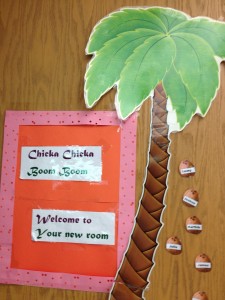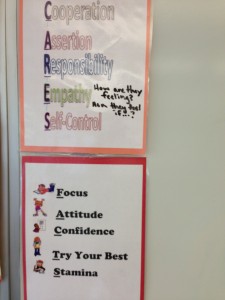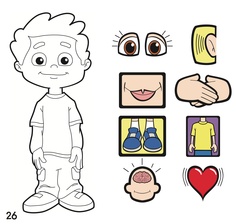Posted by kavery508 | Posted in Uncategorized | Posted on September 8, 2013
Weekly/biweekly updates will appear in a new post here. To access updates to the Nuts & Bolts section, simply click the link on the right hand side of the blog.
 Hope to see you this Wednesday night! Mrs. McCubrey & Ms. Day will begin at 6:30 in the café, and we’ll meet in our classroom at 6:45 when I’ll share subject area goals for the year. In addition there will be a signup for parent conferences in the room. If you have questions you hope will be answered that night, email them to me ahead of time so I can try to include them in my talk!
Hope to see you this Wednesday night! Mrs. McCubrey & Ms. Day will begin at 6:30 in the café, and we’ll meet in our classroom at 6:45 when I’ll share subject area goals for the year. In addition there will be a signup for parent conferences in the room. If you have questions you hope will be answered that night, email them to me ahead of time so I can try to include them in my talk!
This week we will continue to learn through FACTS and CARES.  The focus will be on Confidence (believing in yourself); Assertion (standing up for yourself and others); Trying Your Best; Stamina (which we’re developing bit by bit); and Cooperation. We’ll also develop rules for our classroom community beginning with our hopes and dreams for ourselves in school this year. We’ll explore what we should and shouldn’t do so that everyone can achieve their goals. More on this from the Responsive Classroom: https://www.responsiveclassroom.org/article/our-hopes-and-dreams-school
The focus will be on Confidence (believing in yourself); Assertion (standing up for yourself and others); Trying Your Best; Stamina (which we’re developing bit by bit); and Cooperation. We’ll also develop rules for our classroom community beginning with our hopes and dreams for ourselves in school this year. We’ll explore what we should and shouldn’t do so that everyone can achieve their goals. More on this from the Responsive Classroom: https://www.responsiveclassroom.org/article/our-hopes-and-dreams-school
As a school, we are committed this year to developing Social Thinking in children. This means teaching kids how to recognize and monitor their emotions and behavior, and how to interact with others. Besides the above work, school psychologist Ms. Demoga came in to teach us about Whole Body Listening. This means using our eyes, ears, hearts and minds to understand what others say and mean. We’ll be exploring the concept further this week as we practice what it looks like and sounds like. For more info, including links to theory: http://www.socialthinking.com/books-products/books-by-age-group/preschool/whole-body-listening-larry-at-school-detail
Reading The elements of a strong reading education include accuracy, comprehension, vocabulary development, fluency, and phonics/word study. This week we will focus on thinking about text as we listen to read-aloud stories. What’s important is that students begin to develop what’s called metacognition by recognizing when a story reminds them of something, or by pausing to ask questions or otherwise process what is in the text. Reading aloud to children remains one of the most effective ways to improve literacy, both at home and at school. When reading to your child, pause to ask, “What did you notice there? Why do you think _____? What does that make you think of? What might happen if _____?”
We will also begin work in vocabulary journals, the intent of which is to improve kids’ focus on words and their meanings. We’ll also introduce our word wall (sight words to memorize like the, and, with words that increase in difficulty. We’ll learn a bit about short a sounds in words, too. In addition, we continue to practice how to choose and read just-right books (improving fluency) for longer than 5 minutes without stopping (building stamina).
Math We continue to play games designed to improve our fluency with numbers and counting. By the end of Unit 1, students should be able to count by 1s and 5s up to at least 20, and back. They should also be able to write those numerals, and be able to tell what is one more/less than any number. You can help your child master these by using the number line or number grid. These tools can help develop a sense of how big numbers are as well, and can lay the foundation for addition and subtraction. We’ll also learn this week to make tallies of various things, as a ground-up way to learn how big numbers are when counting by 5s. In addition, we will practice using a calendar, including naming days of the week and reading the date.
Check out this Everyday Math page with links to games that support learning: http://everydaymath.uchicago.edu/parents/games-table/
Writing Good narrative writing comes from good storytelling. Horn and Giacobbe (2007) note, “Children learn to tell stories that are personally significant, include specific details that evoke emotion, and reveal feelings when they hear stories that do those things” (p. 23). In addition, writers write best on what they know. This week we will read stories authors have written from experience, and we will begin to share aloud stories from our own lives. This is the basis for all the written work to come this year, including narratives, opinion writing, expository writing, and poetry.
Homework Math homework will begin this Thursday. Reading homework begins next month, math facts homework in November, and writing work in the new year. Here is a guide with good advice for doing homework at home; see pp. 4-6: http://www2.ed.gov/parents/academic/involve/homework/homeworktips.pdf
References
Horn, M., &Giacobbe, M. E. (2007). Talking, drawing, writing: Lessons for our youngest writers. Portsmouth, ME: Stenhouse Publishers.


